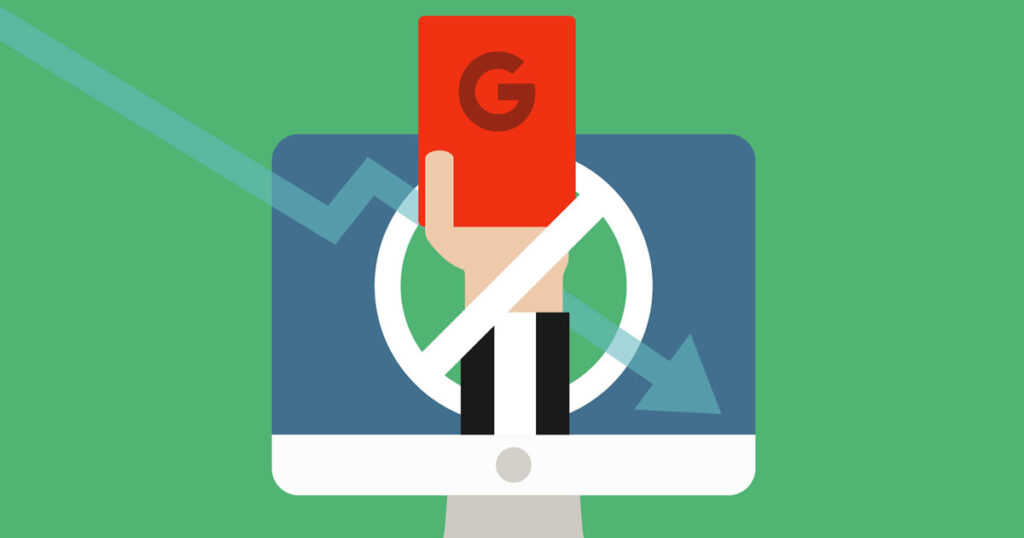If you have a website, chances are you’ve gone to Google and searched your own site’s name. If it shows up high in the search results, you’re probably happy. But have you ever searched for your own site and found that it doesn’t show up at all? This means that Google has penalized your site, which can be pretty devastating (though not permanent). Here’s what the Best SEO Agency in India has to suggest on how to recover from a Google penalty:
Identify the penalty.
The first step is to identify the penalty. Google will tell you what it is, and they’ll give you some tips on how to fix it. If your site has been penalized, there’s a good chance that it’s because of bad SEO practices or other unethical behaviour. For example, if someone told you that they could get your website to rank in the top 10 results for “buy shoes” just by paying them $5k per month? That would be sketchy as all hell. Google wants its search results to be useful and trustworthy, so they’re going to make sure that no one who publishes content on its platform is trying similar tricks.
If you’ve been hit with a penalty from Google, then something went wrong with one of these three things:
- Content Quality – This means that either the content wasn’t written well enough (or at all), or it didn’t stay up-to-date
- Links – Linking out to low-quality websites can hurt your rankings if those low-quality sites link back here too often.
- Outbound Link Profile – Too many outgoing links might mean we’re trying too hard to rank in SERPs rather than focusing on improving our core service/product.
Diagnose the problems.
The first step of a recovery campaign is to diagnose the problem. This is where you should check Google Search Console and Google Analytics, which can give you a general idea of what’s going wrong with your site.
If you aren’t familiar with these tools, here are some quick tutorials:
- How to Set Up & Use Google Search Console (Search Console)
- How to Install and Configure Google Analytics
Repair and remove bad links.

The crucial thing for the Best SEO Company in India is to identify which links are causing the problem. In order for Google to penalize your site, they have to be able to detect that the link is unnatural and not something a human would click on.
This is why it’s crucial that you go through every one of your backlinks individually and look at them with a critical eye:
- Is this link relevant? Would it make sense in context if someone were reading about me? (For example, don’t put links in an article about me as part of my biography if they’re not related.) If the answer is no, then revise or remove it!
- Is this link spammy? Are there any signs that it’s been automatically generated or purchased by someone else using bots? If so, revise or remove it!
Now that we’ve got all those bad links out of the way… It’s time for step two!
Disavow bad links.
Disavowing links can have a huge impact on your SEO. It’s important to understand what the term “disavow” means before you go about disavowing links. In short, disavowing a link means telling Google that you don’t want them to count it as part of your ranking factors. If you’re trying to get rid of old and low-quality links that make you look sketchy or questionable, this is the right move for you.
You may have heard that in order to recover from a penalty, you need to ask people who’ve linked back to your website (or own sites) if they’ll simply remove those links from their pages altogether. This is called Link Removal Requests, and while they’re an important step toward fixing any issues with penalties (and should absolutely be done), they aren’t enough on their own because doing only this won’t help increase visibility or trustworthiness in search results—the main goal for anyone seeking forgiveness from Google!
To truly fix things once and for all, though? You’re going to need something stronger than just asking nicely: Disavow your bad links!
If you have a website, you need to be on Google’s good side and do whatever they say.
Google is the most important search engine on the internet. If you don’t have a website, you’re missing out on a huge opportunity for brand awareness and traffic. If you do have a website, but it’s not optimized for Google, then it’s unlikely to get much traffic or earn any revenue from ads (if any).
To get back in Google’s good graces after being penalized by them, we need to make sure that they see us as being compliant with their rules. They’ll only decide whether or not we’re compliant if they look at our site – so let’s make sure that happens!
Conclusion
We hope this article has given you some insight into the world of SEO and Google penalties. It’s an important topic that affects many people, so it’s crucial to make sure your website doesn’t get caught up in any webmaster traps. You can also contact the Best SEO Company in India for any guidance. If you follow all the steps we outlined above, then there’s no reason why your business shouldn’t be back on its feet—and ranking well again!

